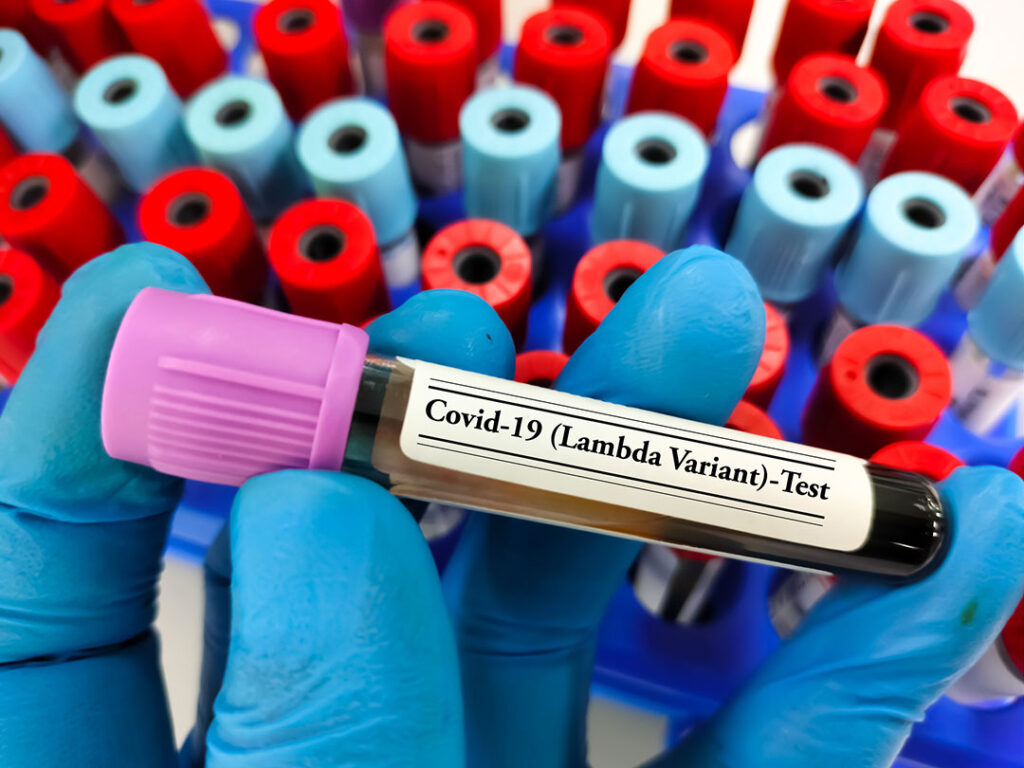ADF STAFF
Another COVID-19 variant has arrived in Africa.
Called lambda, it has become the dominant strain in its country of origin, Peru, which had the world’s highest fatality rate and deaths per capita in July.
It also has spread to at least 29 countries, including Egypt.
First identified in August 2020, genomic sequencing of COVID-19 cases found the lambda variant present in more than 80% of samples taken in Peru since April 2021.
The World Health Organization (WHO) has labeled it a “variant of interest,” which means it has not yet risen to the level of a “variant of concern,” as have the delta and alpha variants. The current designation means that scientists are studying it to see whether the changes to the virus affect its transmissibility, disease severity or immune responses to it.
Although the lambda variant has been confirmed only in one African country, public health officials are on alert. A South African news report erroneously said the lambda variant had been identified in Zimbabwe, prompting the country’s Health Ministry to say sequencing of samples is ongoing. “We trust our genomic sequencing,” ministry spokesman Donald Mujiri told Health Times. “This is not something we can hide; this is COVID-19, and if we detected a new variant, we will announce so that our people know what they are dealing with.”
A South African public health official stressed that other variants pose a much greater threat. “At the moment, the lambda variant is not a big concern,” Professor Tulio de Oliveira of the Network for Genomic Surveillance South Africa said July 7. “The real concern is the delta variant that is much more transmissible and is causing a large number of infections and a very big third wave.”
Like other variants, lambda has mutations along its spike protein. This concerns researchers because many vaccines use the spike protein to identify the virus. That means a change could allow the virus to multiply undetected.
A paper published by New York University researchers offered some reassurance. It found that the main messenger RNA vaccines performed well in protecting people from lambda.
“The vaccines induce such good antibodies that even if the virus is a little bit resistant, they are still quite sufficient to kill the virus,” Nathaniel Landau, a microbiologist at New York University who studies the variants, told The Washington Post.
Experts reiterated that despite new public health complications caused by variants, getting vaccinated offers the best protection.
“No matter what Greek letter comes along next, the vaccine is really our best defense,” S. Wesley Long, medical director of diagnostic microbiology at Houston Methodist Hospital, told the Post. “If anybody thinks they can hunker down and never get the virus, I think that’s a fantasy.”

